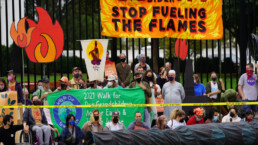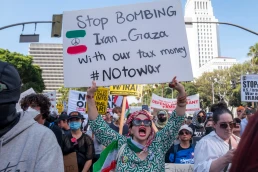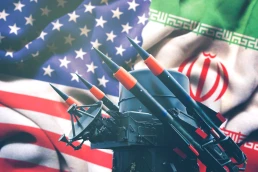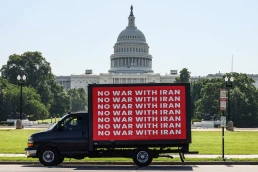There’s evidence that global warming creates fertile ground for political strongmen to come to power.
By L.V. Anderson, Grist
In November 2013, one of the strongest tropical cyclones in history made landfall in the Philippines. Known locally as Super Typhoon Yolanda, the storm pummeled the island country with 235-mile-per-hour gusts and a 17-foot storm surge; picked up limousine-sized boulders as easily as plastic bottles and deposited them hundreds of feet away; and officially killed 6,300 people, although the true death toll was likely much higher.
Rodrigo Duterte, then the longtime mayor of Davao City, made headlines for traveling some 400 miles to one of the worst-ravaged areas of the country, along with a convoy of medical and relief workers and roughly $150,000 in cash. He announced that he’d told security forces to shoot any looters who might try to intercept the convoy. (He went on to clarify, “I told them to just shoot at the feet. … They can have prosthetics after, anyway.”) As a presidential candidate in 2016, Duterte slammed his opponent, the former interior secretary, for allegedly misspending Yolanda recovery funds. He won in a landslide.

Over the next six years, Duterte proved that his foul-mouthed maverick shtick wasn’t harmless posturing. He presided over a brutal war on drugs in which police and vigilantes — emboldened by the president — killed as many as 30,000 people, imposed martial law on an island home to 22 million for two and a half years, and signed a law that gave law enforcement broad authority to arrest and detain suspects without warrants.
Typhoon Yolanda “offered the Philippines’ presidential hopeful Rodrigo Duterte an avenue to exploit people’s helplessness to secure their support,” according to an economist who studies the ways storms affect democracy.
The past decade or so has given rise to a grim parade of Duterte-like candidates around the world — politicians who have obliterated the bounds of acceptable political discourse, scapegoated religious and ethnic minorities, dismissed journalism as fake news, sought to imprison their rivals, and undermined democratic checks and balances. In India, commonly referred to as “the world’s largest democracy,” Prime Minister Narendra Modi has vilified Muslims and carried out a campaign promise to build a Hindu temple on the site of a mosque razed by Hindu mobs. In Brazil, former President Jair Bolsonaro promoted a bill that would strip Indigenous tribes of control of their lands and unsuccessfully plotted a coup to remain in power after losing reelection. And in the United States, former President Donald Trump — currently running for reelection — separated immigrant children from their parents and incited a horde of supporters to attack the U.S. Capitol.
Recent Posts
As Trump Bombs Iran, We Need to Reckon With the American War Machine
March 1, 2026
Take Action Now We cannot afford to slip into despair. We must push back against militarism everywhere, at every turn.By Negin Owliaei ,…
Oman’s Foreign Minister Said US-Iran Deal Was ‘Within Our Reach.’ Then Trump Started Bombing
February 28, 2026
Take Action Now “The Omani FM decided to go public,” suggested one observer, “so that the American people knew that peace was within reach when Trump…
A War With Iran Would Not Be a One-Off Event But a Disastrous Ongoing Rupture
February 26, 2026
Take Action Now If Congress cedes its power to stop a war with Iran, it will fully erode any lingering promise of democratic restraint.By Hanieh…
New Addition to List of Nuclear Near Catastrophes
February 25, 2026
Take Action Now Debris flew for great distances — many times the distance of 270 meters to a nuclear reactor and nuclear storage facility.By David…




